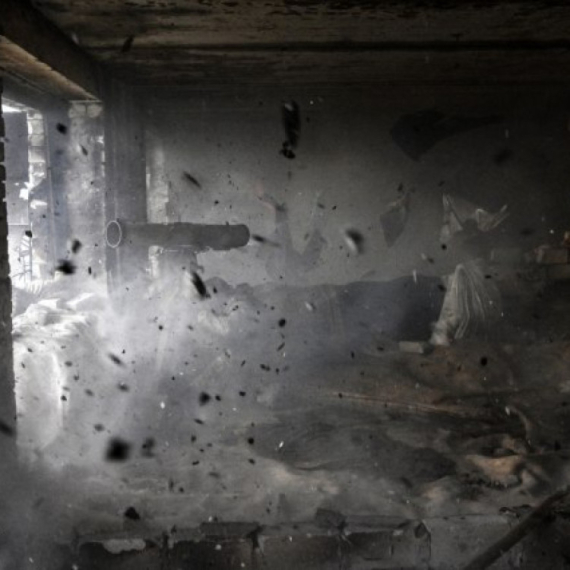Serbia to guarantee for Šešelj if he accepts conditions
The government is willing to provide guarantees for Vojislav Šešelj if he undertakes to comply with all requirements of the Trial Chamber of the Hague Tribunal.
Wednesday, 02.07.2014.
09:53

Serbia to guarantee for Šešelj if he accepts conditions
"In practice so far, the government of Serbia has successfully implemented all orders on provisional release of Serbian citizens accused by the Hague Tribunal," said a statement.The government thus responded to a request sent by the court, asking whether it would provide guarantees for the temporary release of Šešelj. The statement said that under the Law on Cooperation with the ICTY (Hague Tribunal), it previously gave guarantees to all citizens of Serbia who had asked the country to guarantee they would meet all conditions specified by the court.
Well-known Serbian lawyer Toma Fila commented on the case for B92 to say it was "specific."
Previously, requests for provisional release came from the defense and the accused, and the Serbian government provided such guarantees because in cases of Hague defendants who had voluntarily surrendered, it must.
"What the Tribunal seeks, the special conditions - that he (Šešelj) be under house arrest, that he is fitted with an ankle monitor, and so on - this is something that the Serbian government does not have and should not accept. According to the Law on Cooperation Serbia can and must guarantee that Šešelj will not leave the country, and that's all the Republic of Serbia needs to do. The specific requirements must be met with strong opposition from our country," said the lawyer, adding that it was "absolutely clear that this is a trick, a scam":
"The court is trying to solve its own problem by shifting it onto Serbia. They know well that Šešelj will never accept the conditions, that he does not accept them ... That means that, if he comes back to Serbia, he'll take that bracelet off, he'll go outside through the window, if necessary, through the door, he will create an incident, then Serbia would have to arrest him, and send him back using force."
According to Fila, the Hague, Netherlands, based UN war crimes court in this way " wanted to cover itself for what is an unprecedented, unseen, historic scandal that someone is sitting (incarcerated) for so many years without a verdict."
"As Šešelj has done enough to justify himself, they can simply let him go, let him come to Belgrade and wait for the trial to continue and for the verdict, under the conditions that Šešelj stated. In other words, (the government) would only guarantee that he will not run away from Serbia and will appear before the tribunal when asked. This is the only thing Serbia can do," concluded Fila.
Šešelj voluntarily surrendered to the Hague on February 23, 2003. He pleaded not guilty to all counts in an indictment charging him with crimes against humanity and violations of the laws or customs of war in Croatia, Bosnia-Herzegovina and Vojvodina between 1991 and 1993.
He has been held in a detention unit of the Hague Tribunal ever since, and the case, which commenced on November 7, 2007, is still at trial. The prosecution completed the presentation of its evidence on January 13, 2010 and the accused, who is representing himself, did not want to make any defense arguments.
Šešelj was tried and convicted of contempt of court three times, receiving sentences of 15, 18 and 24 months in prison.











































Komentari 5
Pogledaj komentare